Held earlier this month, both of Hong Kong’s major annual international fashion events served to highlight why fast fashion is no longer an option for the city. Gennady Oreshkin reports.
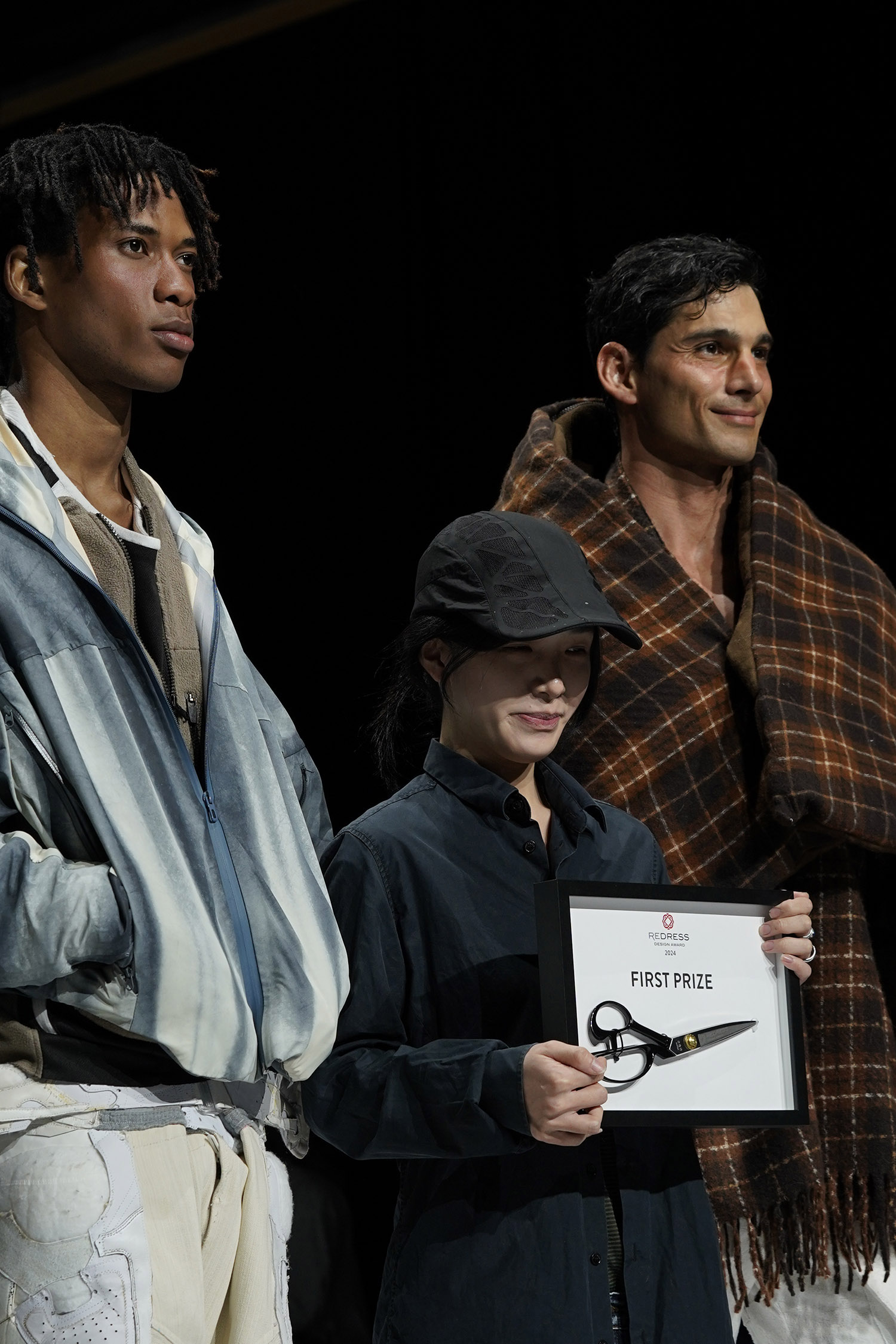
September is considered fashion month in Hong Kong. One might as well call it Hong Kong’s sustainability month, as sustainable clothing was front and center at both of the city’s two major annual fashion events, which took place in the first week of September. Held from Sept 4 to 7, the Hong Kong Trade Development Council-managed Centrestage reiterated its commitment to sustainable fashion, dedicating one of its thematic zones to circular fashion.
The focus on sustainability is more of a given when it comes to the international fashion design competition, the Redress Design Award. Hosted by the eponymous environmental activism-oriented NGO Redress and held on Sept 6, the event kicked off with a star-studded panel. It had Cantopop boy group P1X3L, supermodel and environmentalist Bonnie Chen, actor Carlos Chan and fencer Shawn Cheung Siu-lun discussing the significance of embracing circular fashion from an Asian perspective.
READ MORE: Tailored by a green design
The focus on sustainably made garments is especially relevant, if not an imperative, when it comes to Hong Kong. According to the Hong Kong Research Institute of Textiles and Apparel website, the city generates around 300 metric tons of textile waste on a daily basis. It also states that the local landfill sites, where 52 percent of such waste ends up, will soon run out of space.
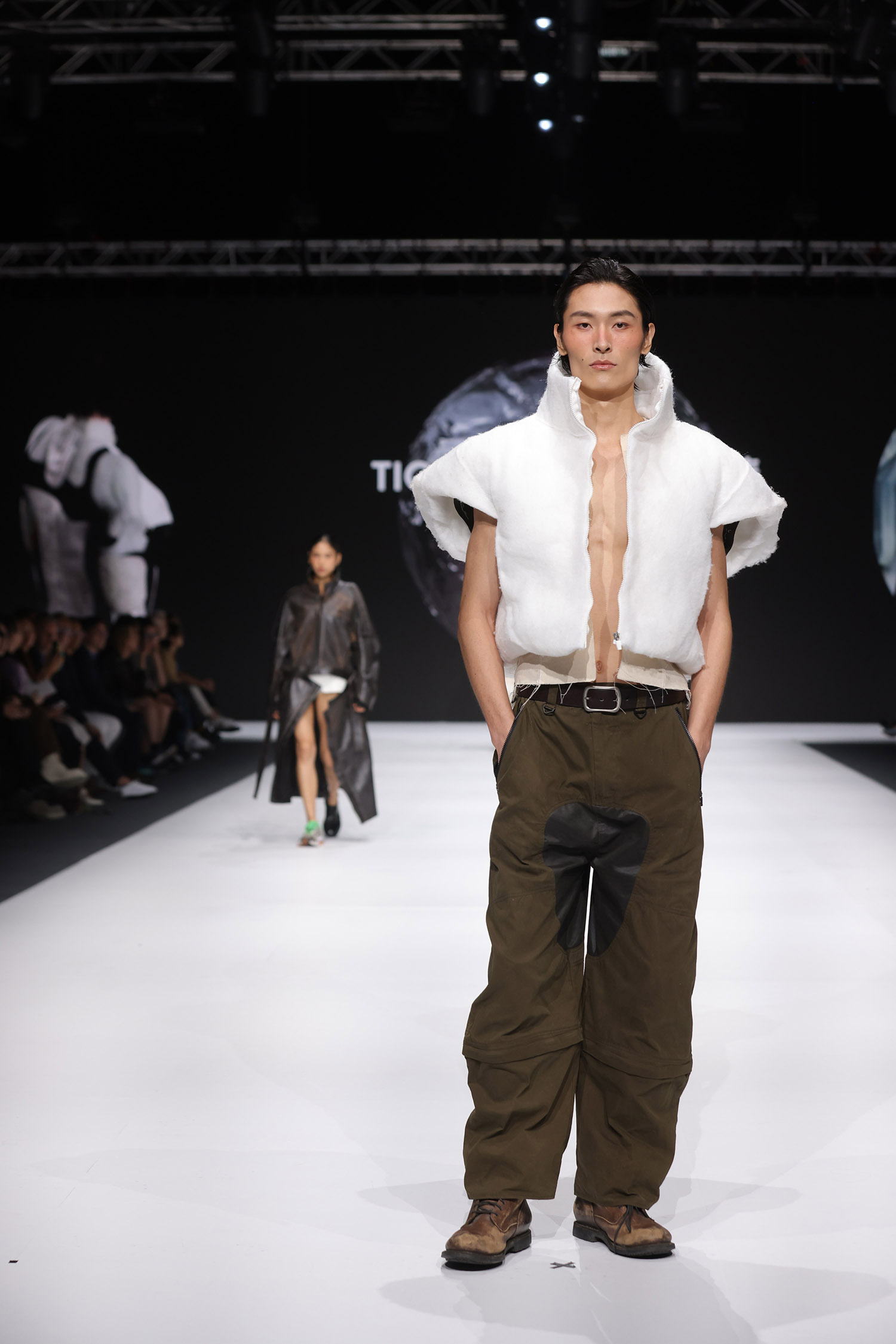
Textile waste is generated from multiple sources — unsold or damaged merchandise, leftover fabric from garment-making, and discarded clothes. Not only does this enormous volume of waste affect the soil it is dumped on, but billions of microplastic pieces from synthetic fibers poison the groundwater, or are emptied directly into the sea via Hong Kong’s drains every day. Also landfill sites are prohibitively expensive to operate. One of the most-recently awarded landfill site extension contracts has cost the city’s Treasury HK$61.1 billion ($7.85 billion).
Reassuringly though, both government-run institutions like the HKTDC and NGOs like Redress are using fashion events to drive home the message that fast fashion is no longer an option for fashion designers and clothing brands.
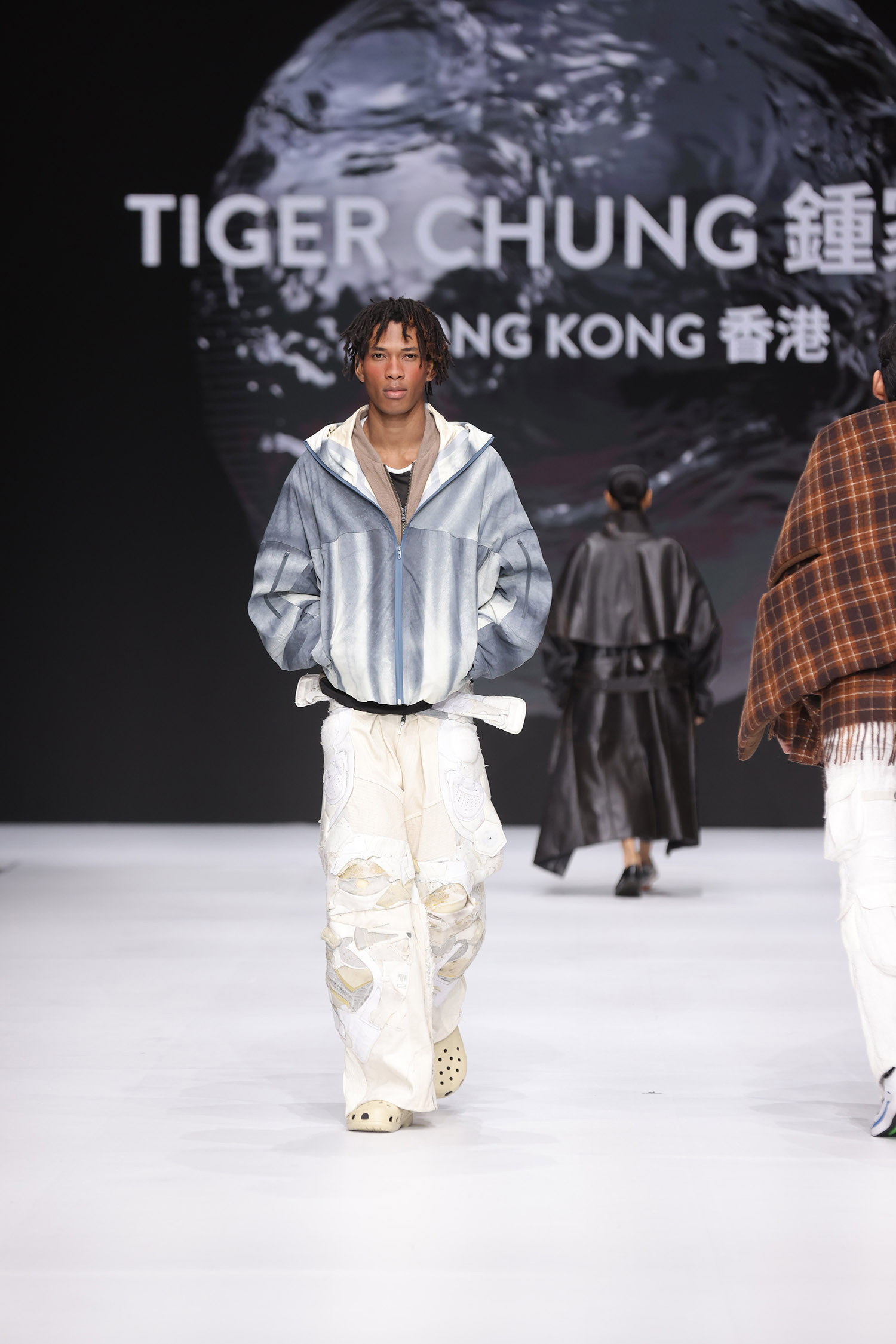
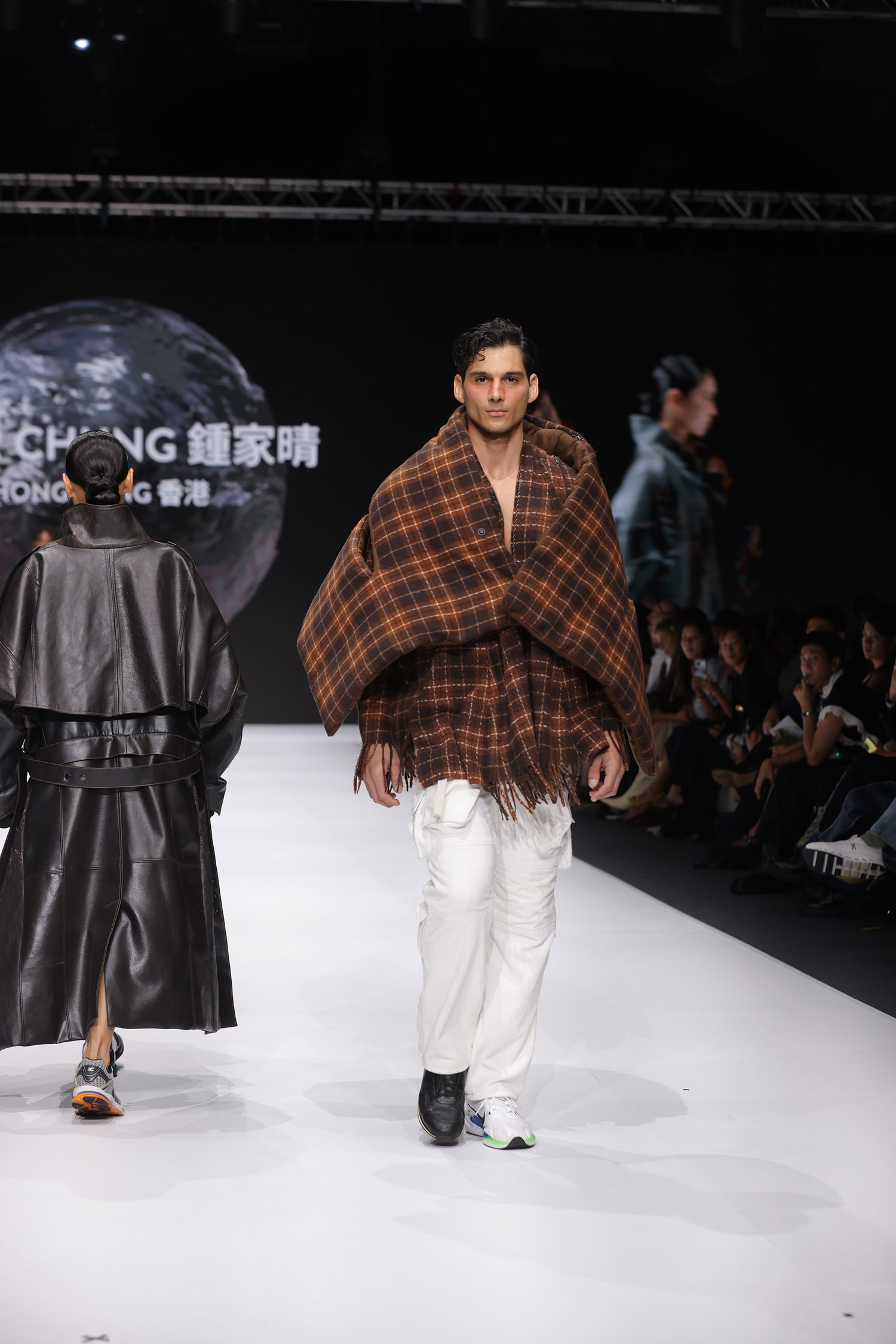
Wealth in waste
Founded in 2007 by Christina Dean, Redress is one of Hong Kong’s most visible advocacy platforms for sustainable clothing. Registered as a charity, the organization runs a secondhand clothes boutique, The Redress Closet, and offers educational programs and workshops to interested members of the public. Besides hosting the Redress Design Award, the NGO also campaigns to bring about changes in fashion waste-related public policy. In 2020, for example, Redress petitioned the local government, providing a list of recommendations to help it transition into a circular textile and fashion economy model for the city.
Befittingly, Tommy Hilfiger was the exclusive fashion sponsor of Redress Design Award 2024. The American luxury clothing brand leads by example when it comes to following sustainable practices. In 2022, 97 percent of its cotton was sustainably sourced, and the brand reached 78 percent renewable energy coverage across its global retail operations. Tiger Chung, who claimed the top Redress award this year, has won the chance to join Tommy Hilfiger’s design team to work on a project for sustainably developed retail products.

Chung’s award-winning collection is made entirely out of recycled towels, blankets and upholstery from old sofa sets sourced from hotels, airlines and refuse collection points. Chung believes that relying solely on discarded stuff for raw material “can effectively reduce the waste problem in the long run”, apart from the obvious benefit of giving trash a new lease of life.
Called The Wanderer, the winning collection takes its cue from people who live in the streets, which explains the slouchy silhouettes, made using distressed and faded fabrics. “The fabric didn’t need extra dyeing or washing because curtains and sofa leather already have a natural fading or distressed effect,” the designer explains. Zero-waste pattern-cutting techniques were applied. Each pair of cargo pants and oversized bomber jacket is designed as a multipurpose piece, in order to maximize its functionality, versatility, and, ultimately, to prolong its lifespan.
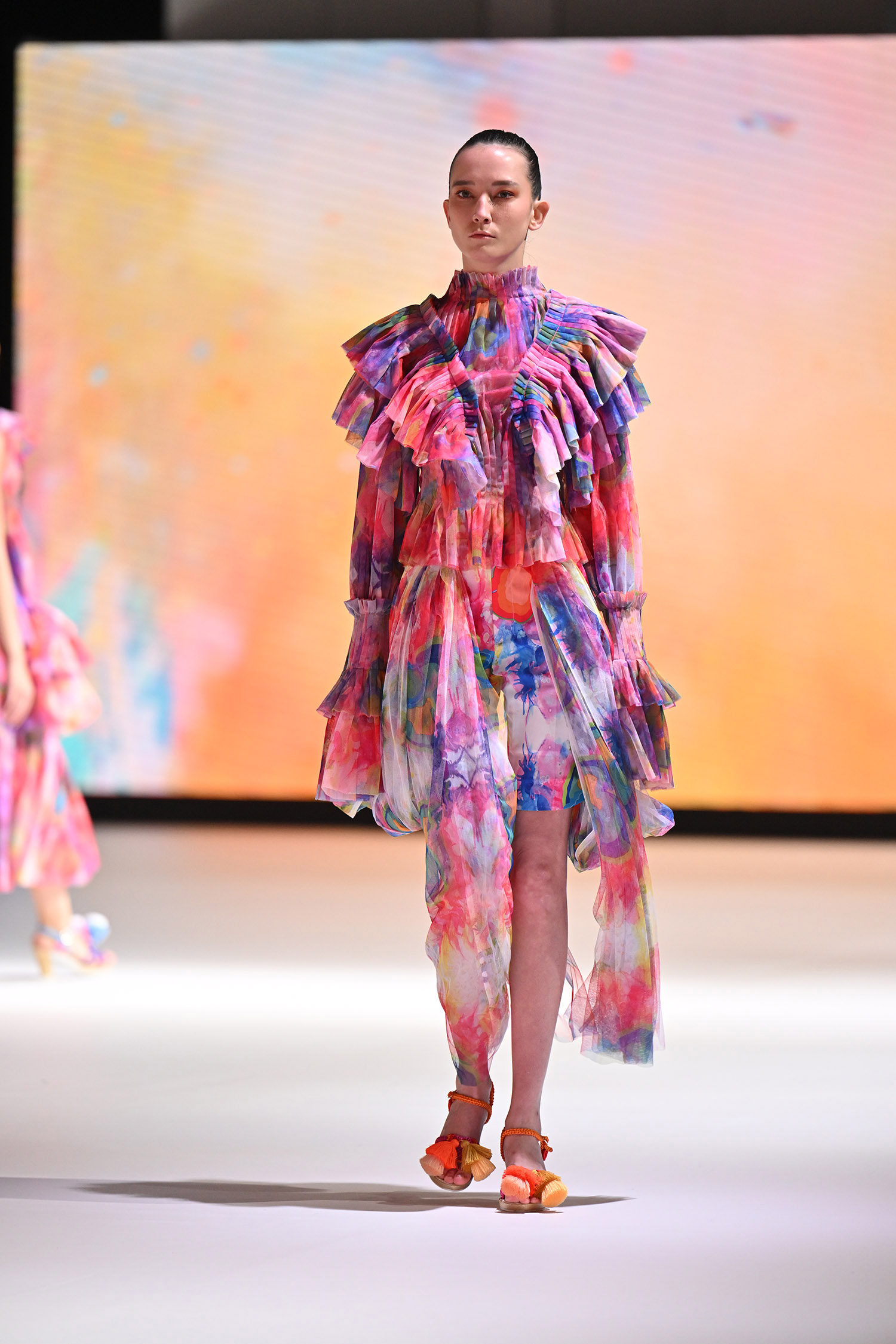
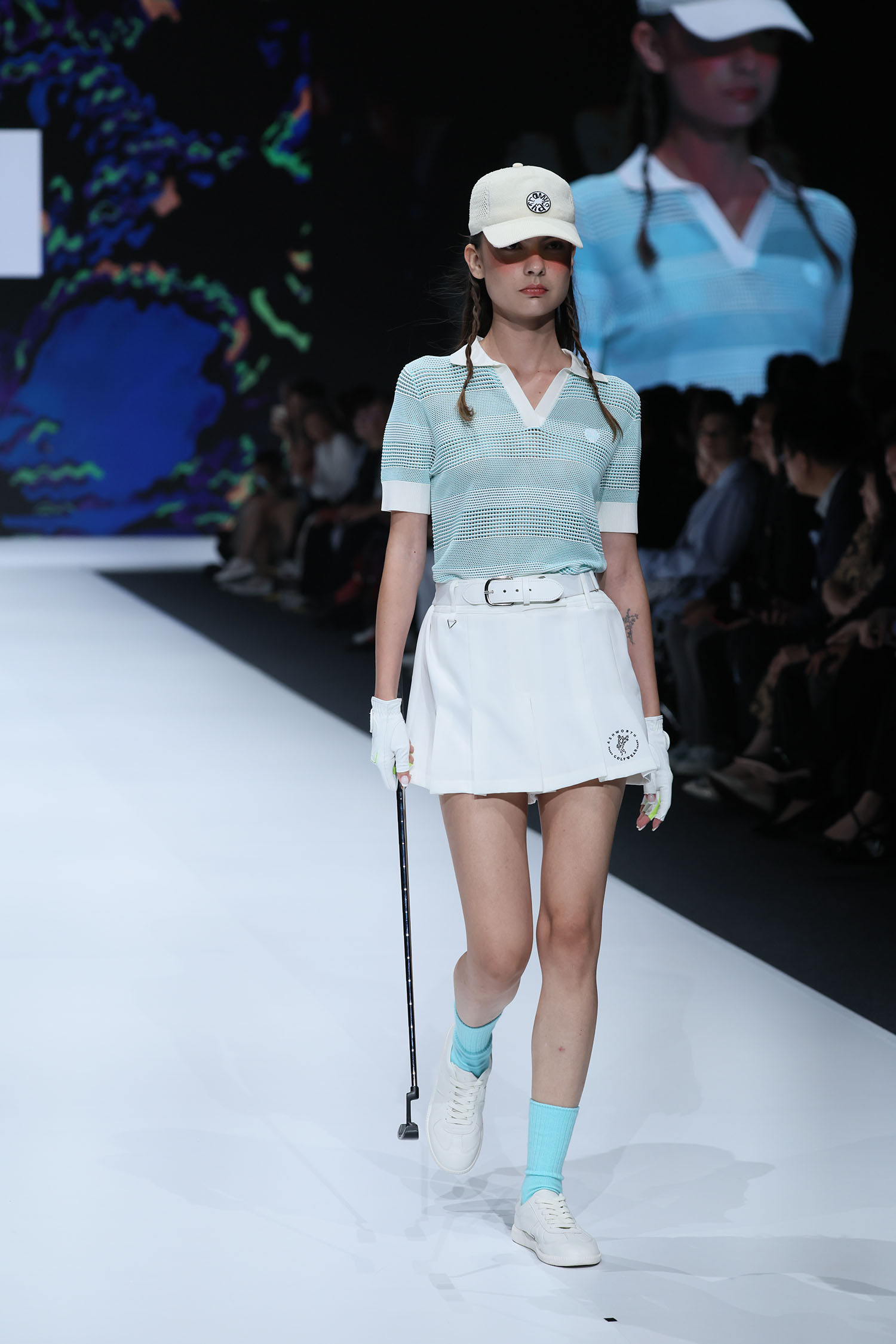
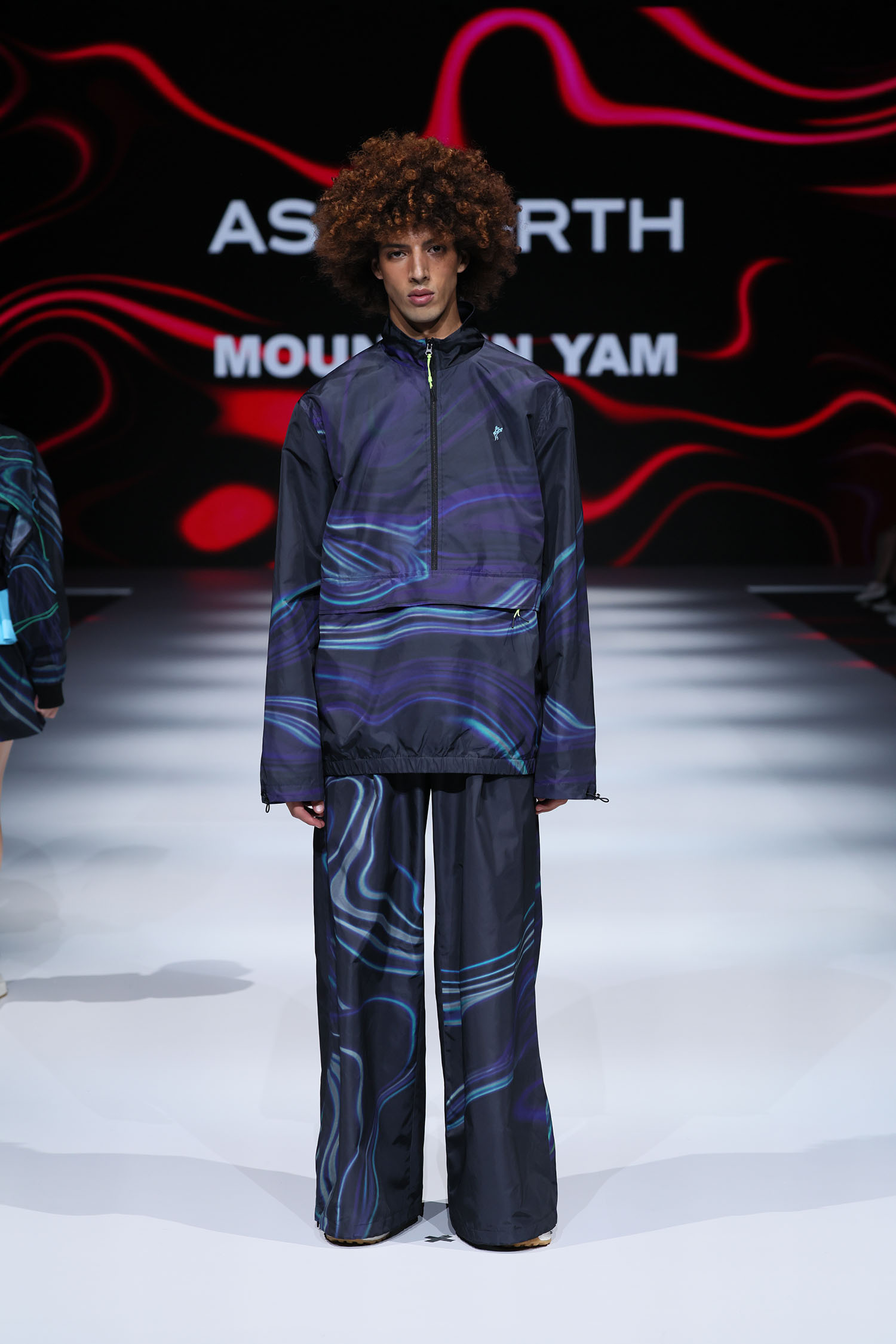
Getting better at recycling
Featured at Centrestage 2024, the Hong Kong design brand 112 mountainyam is premised on the notion that sustainably produced couture can and should look fashionable. “For this collection, we used 100 percent organic cotton, innovative pattern-cutting methods that minimize fabric waste, and nylon, mesh, and polyester made from upcycled fibers,” says the brand’s founder, Mountain Yam. “We also created patches out of other upcycled synthetic materials.”
His brand is demonstrably committed to innovations toward developing green fabric, both for its ready-to-wear and made-to-order lines. At the same time, Yam is keen to ensure that 112 mountainyam can rival some of the legacy luxury brands in terms of the aesthetic appeal of the products.
“We are always learning. Five or six years ago, for example, many of the upcycled materials were still unstable, their fibers were peeling off, and the fabrics wouldn’t last a single wash,” Yam says. The quality, he points out, has improved remarkably over the years.
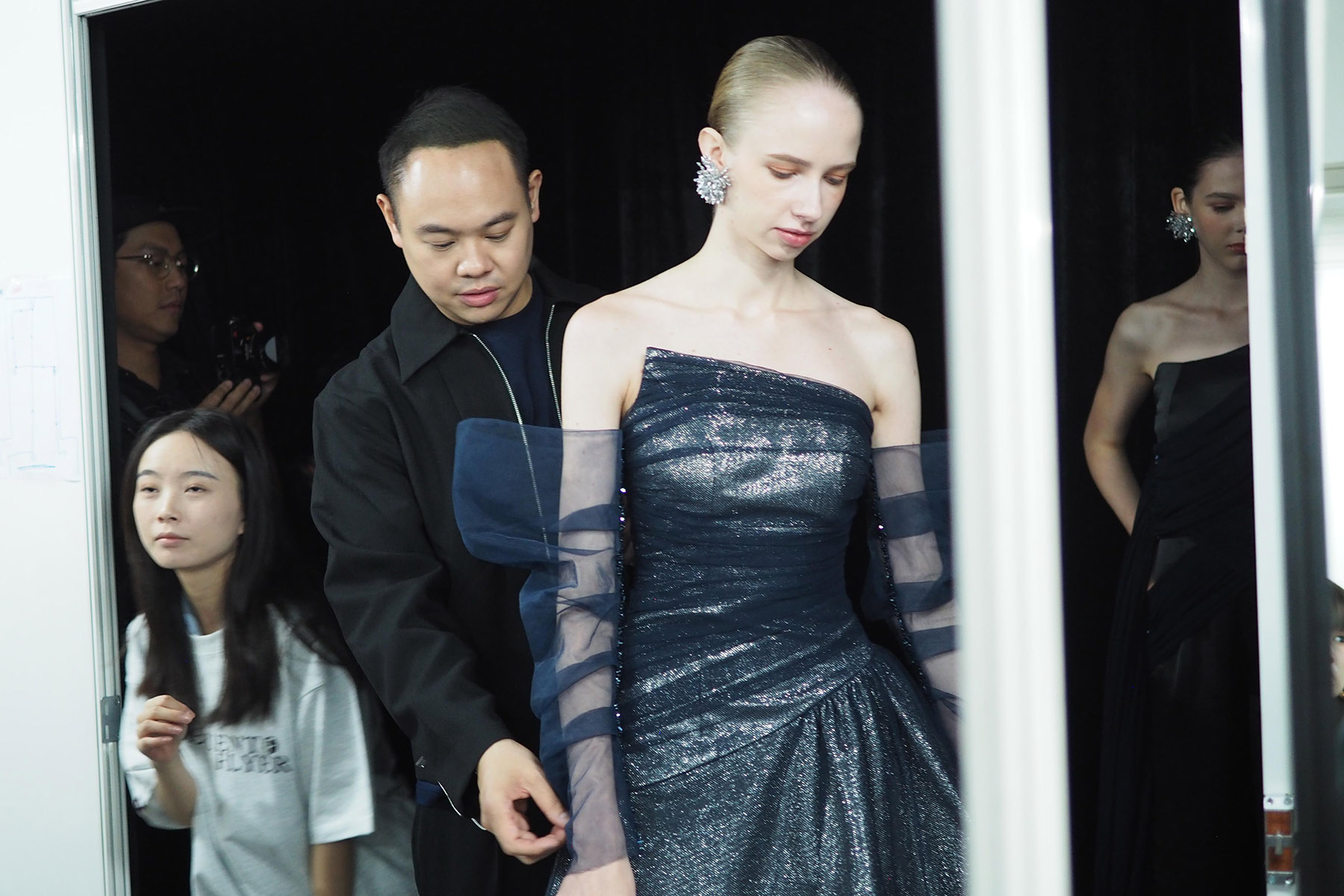
Today, 112 mountainyam designs uniforms for the staff of large-scale Hong Kong-based business enterprises such as New World Development, Hysan Development and Hongkong Land. While it’s not always easy to convince heavyweight corporate firms investing in large orders about the cost-effectiveness of sustainably produced clothing, Yam usually finds a way to work around such conundrums.
“We collect the old uniforms, cut them up into small pieces to create patches to be sewn onto the brand-new uniforms we design,” he says. “For example, for Nina Hospitality and Hong Kong Express airline, we recycle old uniforms to make the trimmings and some of the interfacing fabrics.”
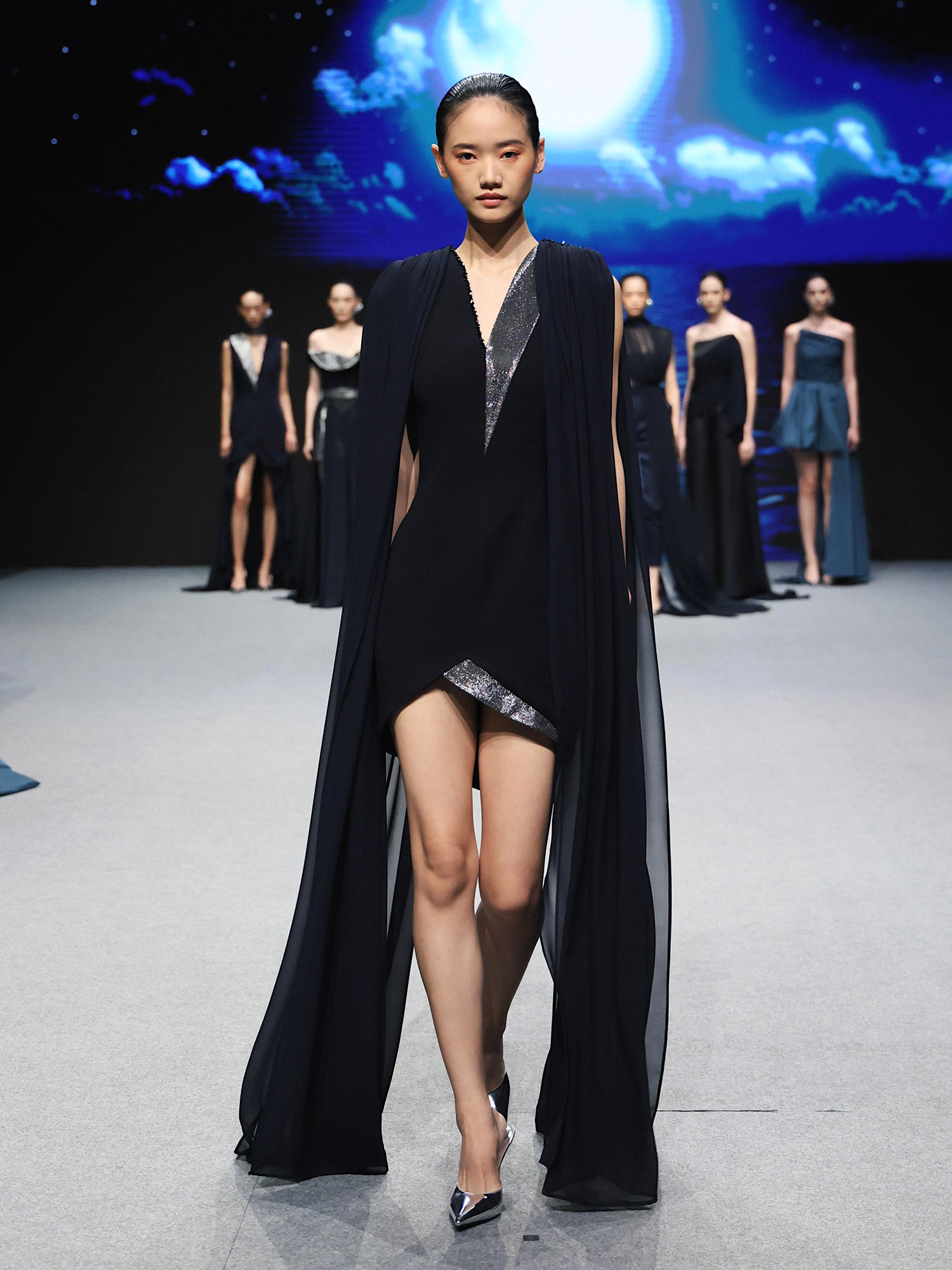
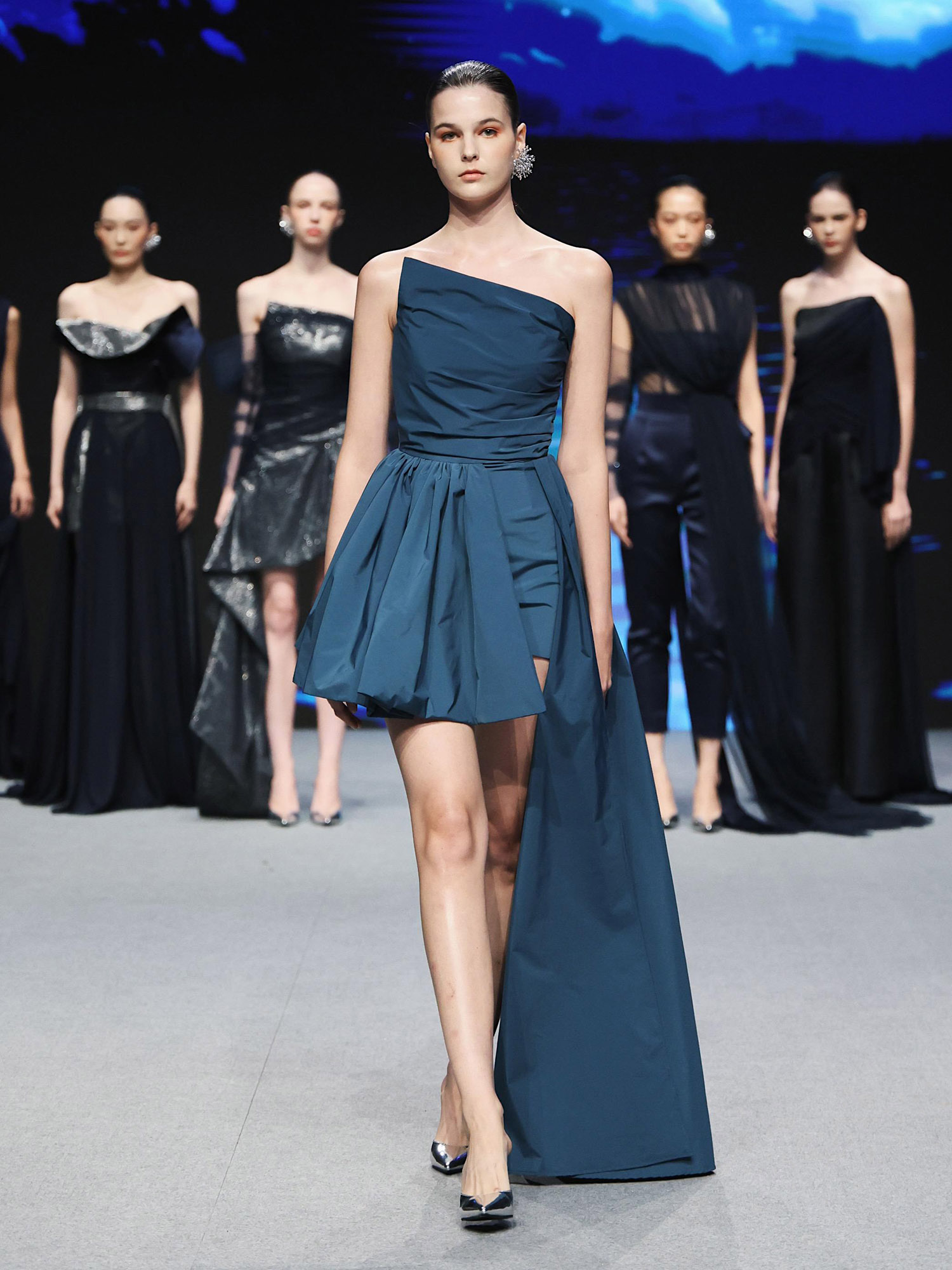
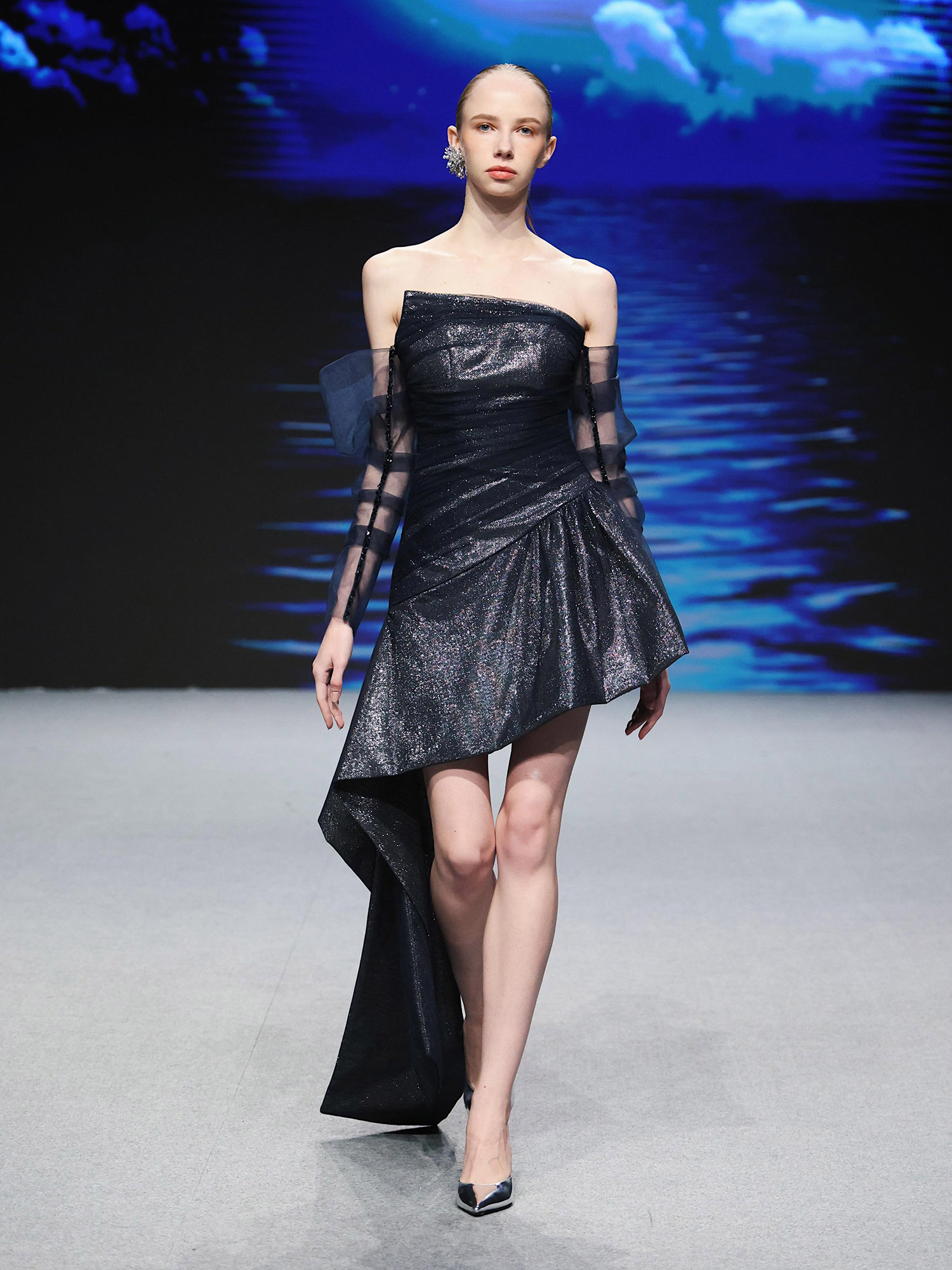
Make it last
Bridal and luxury designer gowns are some of the most glaring offenders when it comes to textile waste. Typically, many of these do not have a life beyond the event they have been designed for. Victor Chan, a designer specializing in bridal and couture gowns, was at Centrestage this year, doing his bit to minimize the impact of discarded clothing on the environment.
ALSO READ: Fashionistas from afar
“As a brand that focuses on custom design service, we create our pieces on request instead of mass-producing. Every piece is made to be kept and worn for a long time,” says the designer credited with dressing up Hong Kong celebrities like actor Crisel Consunji and singer-actor Jace Chan.
Textile waste is a complex problem. After so many years of overconsumption and the fast fashion boom, a solution to such a problem is highly unlikely. Only a long-term commitment by the industry’s major stakeholders keen on bringing about systemic changes can help contain the extent of damage. In the meantime, Redress Design Award and Centrestage provide much-needed platforms to inspire fashion designers and sensitize members of the public, and, hopefully, turn some of them to the side of conscious consumption.


